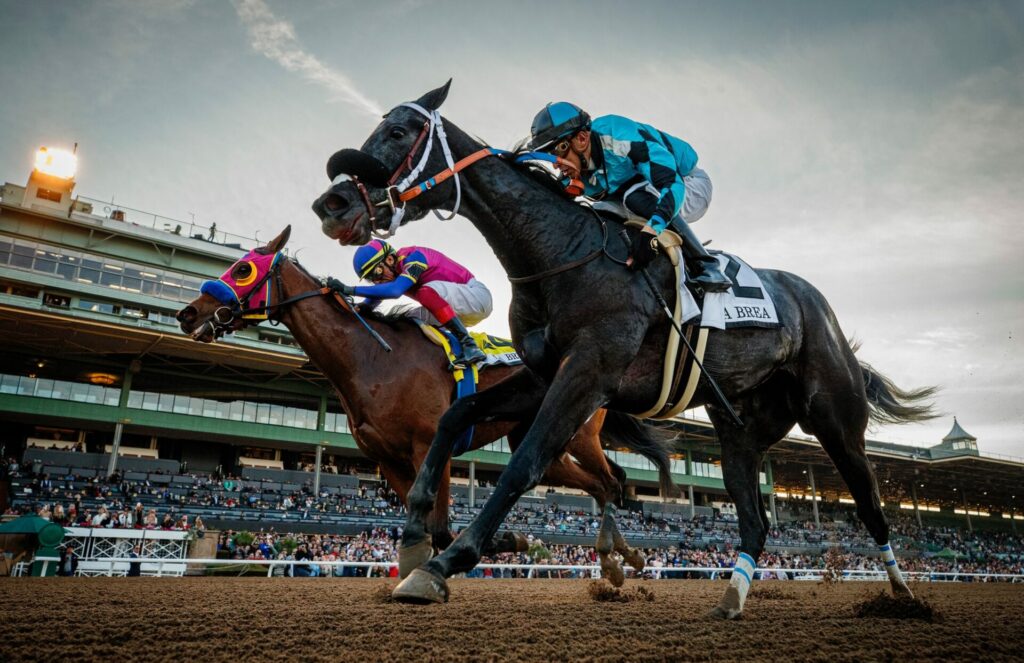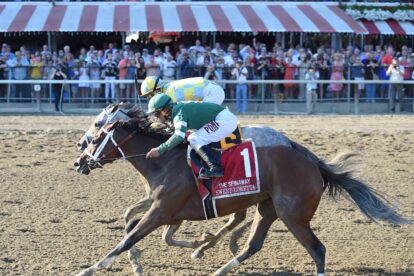Betting on horse races is an exciting hobby that involves careful thinking and research how to choose a winning horse before staking any money. It doesn’t matter if you’re experienced or new to horse racing; making informed decisions is essential to increasing your chances of picking the winner (although even those that follow all the best tips won’t pick a winner every time).
Full Card Plays Available Now
There’s a reason we’re the #1 trusted source for premium racing picks & info.
Choosing the Right Platform
Before selecting a horse, choosing the right betting platform is vital. The betting site you choose can seriously impact your experience. When searching for a betting platform, consider the platform’s security, current offers, odds, deposit and withdrawal policy as well as customer service (source: https://thesportsdaily.com/sportsbooks/offshore/). By selecting a site that offers the criteria most important to you, you will set yourself up for an enjoyable and fun experience.
Do Your Research
Betting on a winning horse involves more than just a hopeful wager. A little research on your part can help you select the right horse. There are several factors you need to consider how to choose a winning horse, including:
- The horse’s recent performance
- Distance preferences
- The jockey and trainer
Firstly, start looking at patterns in a horse’s achievements and taking note of its standout performances at different distances. If a horse consistently finishes strongly in races or demonstrates bursts of speed in races, these traits can offer valuable insights into the horse’s racing distance preference.
Also, look at the horse’s past performances. Pay attention to those who have done exceptionally well running specific distances or successfully transitioned between a variety of distances. It’s crucial to analyze performance beyond just wins and losses. Look at the details of their past performances, such as finishing positions, times, and the overall consistency of the horse.

Additionally, it’s essential to consider the race conditions in which the horse has participated. This includes factors such as the distance of the race, the type of track (dirt, turf, synthetic), and the level of competition. These variables can significantly impact a horse’s performance. Horses that consistently demonstrate good form are usually strong contenders.
Different races vary in competition levels, ranging from beginner to class 3. It’s important to evaluate if the horse has performed well in different class races. Class refers to the level of races in which a horse competes. A horse moving up or down in class can hold significance. If a horse consistently triumphs in lower-level races, it may be well-prepared for competition.
How to choose a winning horse also means choosing the right jockey and trainer. A skilled jockey holds influence over the outcome of a race. Additionally, a trainer’s track record indicates their experience in preparing horses for events. It’s important to look into the history of the jockey-trainer partnership, especially their accomplishments in races. A seasoned duo can make a big impact on race day.
Handicap Ratings
An additional factor to consider is the handicap ratings of a horse. A handicap race is one in which each horse receives a weight based on its ability. This is to ensure that each horse has an equal chance of winning. Handicap races can take place on flat ground and even with jumps.
Starting Position Performance
Certain racetracks tend to favor different starting positions. It’s worth investigating how horses from each starting position have performed on that track. Some horses may exhibit high performance from specific starting positions, so it is advisable to take this into consideration before replacing your wager.
Learning As You Go
Even if you lose a race, take time to review your wager and the horse that you bet on. By learning from your losses, you can ensure that your future wagers will be more successful than your past. Additionally, even if a horse lost in the past, it doesn’t mean it can’t win a future race. Don’t overlook a horse just because you lost a wager on it before.
Watch The Market
Pay attention to market movements, as they can sometimes indicate insider knowledge. It’s a belief among enthusiastic bettors that horses tend to reach their best performance on their third race after a break. Another factor to consider is how well horses perform in their race after a rest period, as this could indicate potential for success. Lastly, take note of race locations for horses, as a change in location can affect their performance.
Choosing the right horse to bet on requires careful consideration of various factors. Horse racing always brings twists and turns. By thoroughly analyzing everything, your chances of winning will improve, plus, you’ll have fun along the way.


